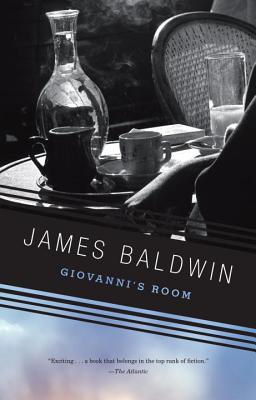APS TOGETHER
Day 7
Part 2, all of Ch. 2, p. 85-102
September 23, 2020 by Carl Phillips
Another arrow! This time, it’s the light bulb dangling from the ceiling of Giovanni’s room. First, it’s described as being like “a diseased and undefinable sex in its [the room’s] center.” Then it’s a “blunted arrow.” It’s hard for me not to put the two images together and see a penis. And it’s this, according to David, that illuminates not just Giovanni’s room but Giovanni’s soul. Whether or not that’s true, that’s how David sees it, and it says a lot about his sexual confusion and about his repulsion when it comes to his own frankly human desires…And it’s interesting what kind of logic this brings out in David: destruction is apparently the way to achieve freedom: “I was to destroy this room and give Giovanni a new and better life.” But to give himself a new and better life, he has to become part of the room himself, the very room that he has to destroy for Giovanni’s sake…This strikes me as the circuitous logic of the desperate and deeply haunted.
So much in this book about home, about the distinctions between Europeans and Americans. And, as I’ve mentioned earlier, so much resistance to home – instead, a constant restlessness, which seems to stir in people a desire for the very home they abandoned. Having traveled all over Spain, Hella says in her letter to David “I want to come home, to come home to Paris. It’s funny, I’ve never felt anyplace was home before.” But just a page earlier, seeing a sailor whom he can’t stop staring at, David says “He made me think of home – perhaps home is not a place but simply an irrevocable condition.” This seems one of the most crucial sentences in the novel. If what David says is true, then home is indeed not a place, but is the messy, tug-of-war self that each of us carries inside. Home, for David, includes the sexual identity that he keeps trying to escape or erase. To be an expatriate is to establish a life in a country other than one’s own. What is it, then, when you commit to a life defined by ways of thinking about and conducting the body that aren’t at all the ways your body recognizes as its own?
For me, the scene between David and Sue is one of the most difficult, most sorrowful scenes in Baldwin’s novel. I wonder, just now, if she isn’t meant to be a version of Giovanni, she is similarly not unworldly and similarly naïve, which is to say, she remains hopeful even as she sees her own disappointment/disaster approaching. Much earlier in the book, Jacques mentions the reason why his own sexual encounters are shameful: “Because there is no affection in them, and no joy. It’s like putting an electric plug in a dead socket. Touch, but no contact.” This could easily describe the sex that occurs between David and Sue, except that Sue can’t be reduced here to a dead socket – she has enough light in her to think, afterward, just for a moment, that there’s something more to what just happened. Then she realizes. As she has had to realize in the past. David knows this, It’s one of the cruelest scenes in the book. Despicable. Again, “the way to be really despicable,” says Jacques, “is to be contemptuous of other people’s pain.” David is possibly worse than that – he’s indifferent to Sue’s pain.
